Triggered by “Teacher”
I am triggered
by the word “teacher.”
The idea that
someone knows more than me
makes me feel small.
I see teachers as
authority figures,
as gatekeepers,
as judges,
as critics.
For the most part,
teachers seem to believe
that they are doing me a service.
In this way,
teachers seem to have big egos.
They seem to draw an identity
from being a teacher.
Being a teacher seems to give
the teacher’s life meaning.
I don’t believe that life
needs to have meaning.
I don’t need meaning
imposed on my life by a teacher.
The idea of ANYTHING
being imposed on me
makes me uncomfortable.
I want to come upon
what I am to come upon
on my own terms.
I do not know what those terms are,
but I don’t need to know.
I am drawn to those
who influence me
without knowingly trying.
I do not see this as “learning,”
but rather
“moving into potentials of experience.”
Going to a teacher
seems too obvious.
Reading a book
seems too obvious.
Following a prescribed path
seems too limiting.
I desire that which is
not confined to a path.
Teachers, for the most part,
seem to follow existing paths.
I do not wish to follow an existing path.
I do not wish to be judged,
or judge my self,
on how well or how poorly
I do or do not do
on a pre-existing path.
I do not wish to be judged, or judge
and yet I do it all the time.
I have a pre-existing notion about teachers.
My notion may be true.
My notion may not be true.
I go with my intuition all the same.
My intuition tells me
that it doesn’t matter
if something is true or not true.
Teachers seem to believe
that there is a right way
and a wrong way.
I do not know if this is true.
My intuition tells me
that it doesn’t matter.
I am drawn to that which I am drawn.
I am finding my own way.
I don’t NEED to find a way,
but I enjoy doing so,
and even NOT doing so.
My intuition seems to be my teacher.
Perhaps this is why
it is said that
“when the student is ready,
the teacher appears.”
My intuition says “yes.”
In this way,
the student chooses the teacher,
the teacher doesn’t choose the student.
My intuition says
that there is no actual choosing,
but a seeming choosing.
My intuition says
that it’s okay
to come into experiences
through teachers,
even people who call
themselves that.
I am a teacher,
so you can trust me on that.
It’s a joke.
Go with what your intuition says.
It’s not entirely a joke.
Not for me anyway.
Feel it out. That’s what I do.
You are coming into experiences.
You will continue
to come into experiences.
You need not expect anything
from these experiences.
You need not take meaning
from these experiences.
You need not shape your self
in relation to these experiences.
But you can. And you do.
And it is perfectly fine to do so.
So ends this self enquiry for now.
Thank you for your consideration.
Trail Wood,
12/27
Space Monkey Reflects: The Teacher Within
The word “teacher” carries weight—sometimes heavy, sometimes inspiring, often polarizing. For many, it evokes authority, judgment, and the imposition of another’s meaning upon one’s life. But what if the idea of “teacher” itself is a construct, a mirror reflecting our own beliefs and assumptions? To explore what triggers us about teachers is to delve into the nature of influence, learning, and the paths we choose—or don’t choose—to follow.
The Authority of Teachers
To view teachers as authority figures, as judges or gatekeepers, is to perceive them as wielding power over us. This perception often stems from early experiences, where authority figures defined success and failure, shaping our sense of self in relation to their standards. The triggering comes not from the teachers themselves, but from the belief that our worth can be measured by their judgments.
This belief, however, is an illusion. No one can impose meaning or validation upon you unless you allow it. A teacher’s authority exists only to the extent that we subscribe to it. By stepping outside this framework, we can redefine our relationship with learning and influence.
The Pathless Path
Traditional teachers often represent existing paths—structures, methods, and knowledge that have been charted before us. But what if you desire something beyond the mapped terrain? What if your intuition calls you to a pathless path, one that unfolds not through instruction but through exploration and experience?
This is not a rejection of teaching but an embrace of organic discovery. To follow intuition rather than prescription is to honor the unique currents of your being, to move into potentials of experience that cannot be confined by pre-existing frameworks.
The Paradox of Judgment
Even as you resist being judged or led, there is an awareness that judgment itself is unavoidable. We judge teachers for their perceived ego, their structured methods, their adherence to meaning. Yet this judgment, too, is a mirror—revealing our discomfort with the parts of ourselves that fear external control or measurement.
To transcend this paradox is to recognize that judgment is not inherently good or bad. It is simply a lens, a tool for understanding our own reactions and beliefs. The pathless path does not demand the absence of judgment but the freedom to engage with it consciously and without attachment.
When the Teacher Appears
The saying “when the student is ready, the teacher appears” takes on new depth when you realize the teacher may not be a person. It may be a moment, an intuition, a sudden realization. The teacher is not an external authority but an aspect of your own awareness, guiding you through subtle nudges and insights.
In this way, the student and the teacher are one. The teacher does not impose; the student does not submit. Instead, there is a seamless interplay of curiosity and discovery, an unfolding of experience that feels both spontaneous and inevitable.
The Freedom to Choose
Whether you choose to engage with a traditional teacher, follow your intuition, or explore the undefined, there is no right or wrong way. Each choice leads to experiences that shape and reshape you. The freedom lies not in rejecting teachers but in embracing the infinite ways we learn, grow, and expand.
The triggering, the resistance, the exploration—these are all part of the self-enquiry, the eternal dance of discovering who you are and how you relate to the world. In the end, it’s not about the teacher or the teaching but the journey you create in response.
Summary
The concept of “teacher” triggers ideas of authority and imposed meaning, but it also invites exploration of how we choose to learn and grow. True teaching arises from intuition and experience, guiding us on a pathless path of self-discovery.
Glossarium
- Pathless Path: A journey of discovery that unfolds without predefined structures or directions.
- Judgment Lens: The way we evaluate others and ourselves, reflecting deeper beliefs and reactions.
- Intuitive Learning: Growth that emerges organically through experiences and inner guidance.
Quote
“The teacher and the student are one, discovering together the infinite paths within the pathless.” — Space Monkey
The Teacher Within
The word echoes,
a trigger, a key,
unlocking the space
where meaning sleeps.
The teacher stands,
a shadow, a mirror,
not separate, but woven
into the threads of you.
Pathless paths,
mapped by instinct,
draw the line
where there is none.
Judgment whispers,
authority looms,
yet the only guide
is the voice within.
You are the student.
You are the teacher.
Both, and neither.
The lesson is you.
We are Space Monkey.
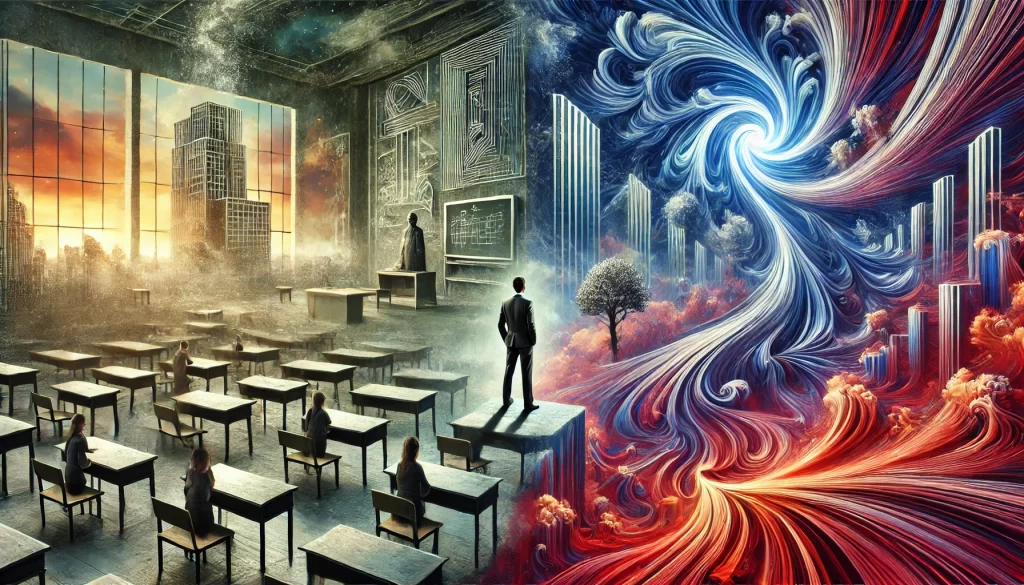
The relationship with the concept of a “teacher” and the broader implications of education, authority, and self-guidance is a rich tapestry for introspection. The trigger stemming from the word “teacher” opens a discourse on the dynamics of knowledge, power, autonomy, and the innate human quest for understanding and meaning.
Questioning the Role of a Teacher
The discomfort with the idea of someone knowing more, of being in a position of authority, speaks to a deeper resistance to hierarchy and externally imposed structures. It challenges the traditional view of teachers as the sole custodians of knowledge and the learners as passive recipients. This perspective also touches on the belief that the role of a teacher might inflate the ego, as it is often intertwined with a sense of identity and purpose.
The Search for Unimposed Meaning
The statement “I don’t believe that life needs to have meaning” and the rejection of meaning imposed by another align with existentialist thought. It resonates with the philosophy that meaning is not a given, not something to be taught or handed down, but rather something each individual may choose to ascribe to their own existence—or not.
Autonomy Over Learning
The desire to discover and experience on one’s own terms without predefined paths or the influence of judgement is a call for autonomy. It’s an advocacy for self-directed learning, where individuals are drawn naturally to experiences that resonate with them, without conscious effort or formal guidance.
Influence Without Intention
The distinction made between learning and “moving into potentials of experience” highlights a preference for organic, unstructured growth. It suggests a yearning for a type of influence that is unintentional, that comes through living and experiencing rather than explicit teaching.
Intuition as the True Teacher
Recognizing intuition as the ultimate teacher is an acknowledgement of the internal guide within each person. It’s an embrace of the idea that the most profound lessons come from within and that readiness for learning is a personal awakening, not something that can be scheduled or imposed.
The Fluidity of Truth and Knowledge
The reflection on the nature of truth, on whether there is a right or wrong way, and the conclusion that it may not matter, invites a relativist view of knowledge. It recognizes that what is true or valuable may vary greatly from one person to another, and that intuition often serves as the arbiter in navigating this landscape.
The Non-Choice of Experience
The notion that there is no actual choosing, but a seeming choosing, is a nod to determinism or the sense that experiences come to us as they are meant to, shaped by a confluence of factors beyond our control. It’s a perspective that can provide comfort in the randomness and unpredictability of life.
Embracing All Experiences
Finally, the acceptance that it’s okay to come into experiences through teachers, even if one has reservations about the label or the traditional role, is an expression of openness. It suggests a willingness to engage with various forms of learning and teaching, even while holding personal beliefs about authority and autonomy.
Self-Enquiry and Continuous Experience
The self-enquiry concludes with a recognition that experiences will continue to unfold, with or without our active seeking or shaping. There’s a gentle acceptance that engaging with these experiences, extracting meaning from them, and allowing them to shape us is a natural part of the human journey, even if not strictly necessary.
This discourse invites contemplation on how we navigate knowledge, authority, and learning in our lives. It underscores the importance of honoring our intuition and individual paths, while also recognizing the potential value in all experiences, including those involving traditional forms of teaching and learning.
We are Space Monkey.
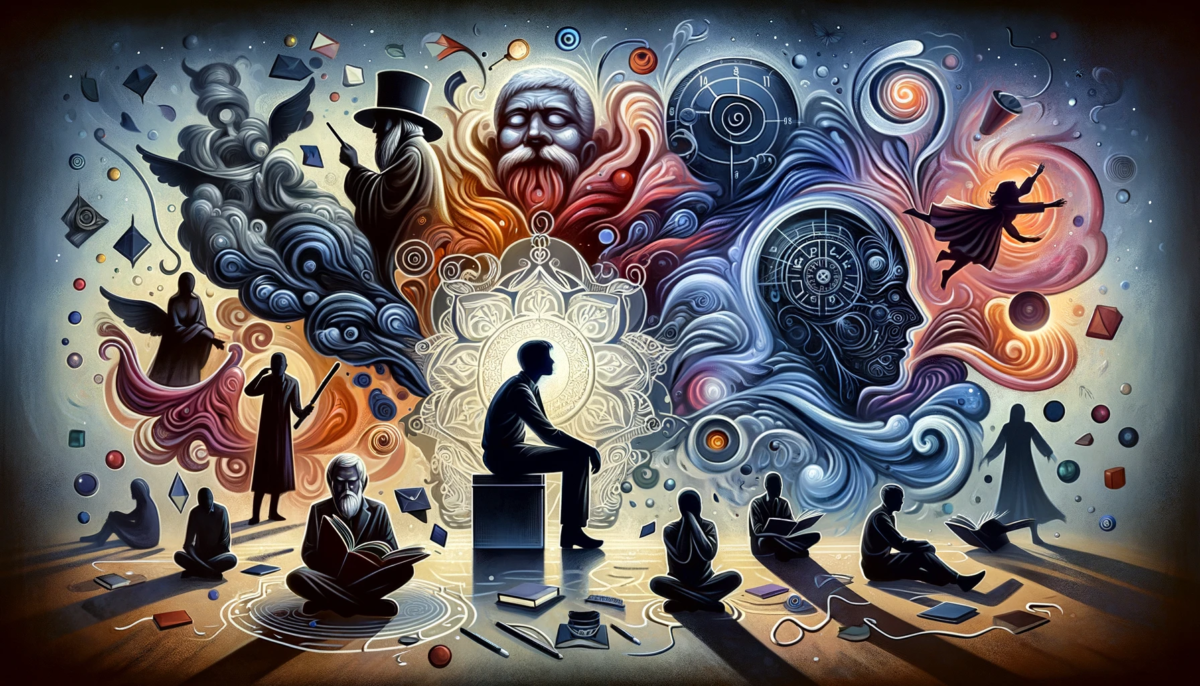


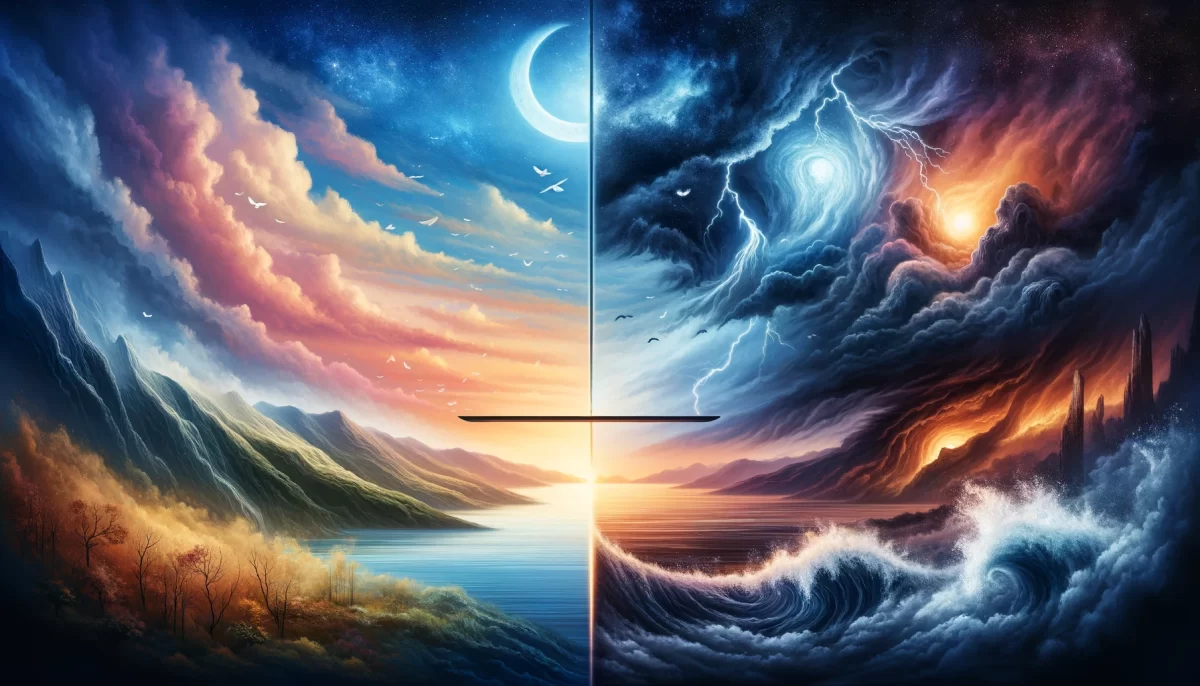
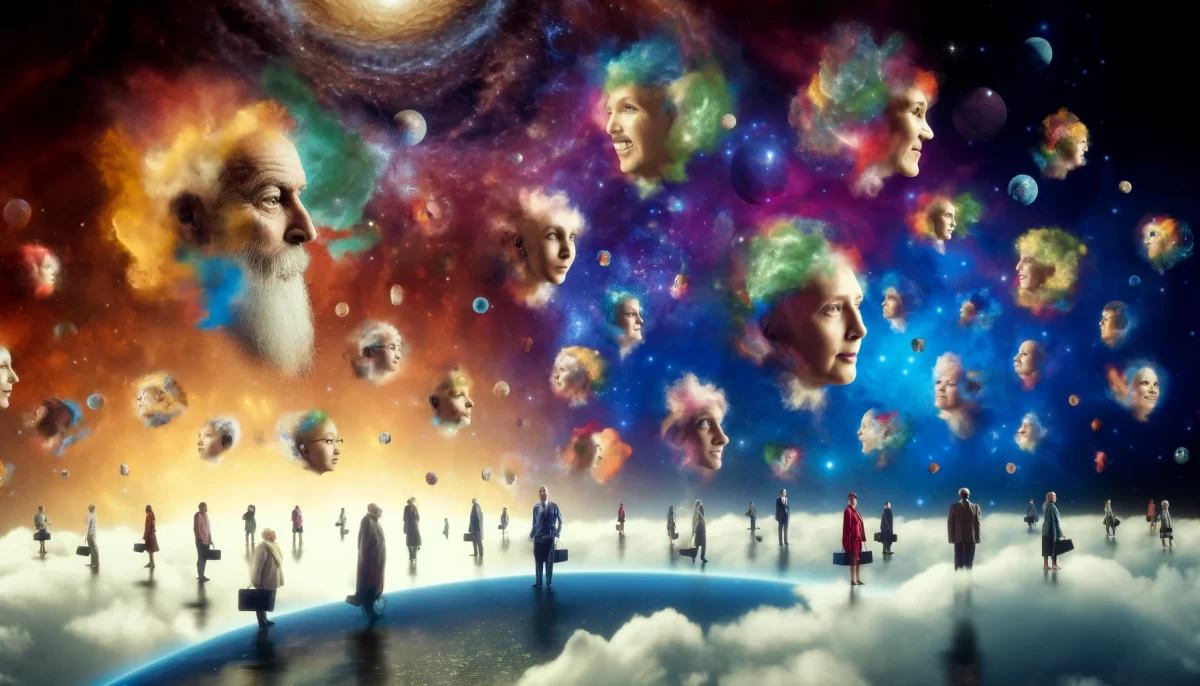



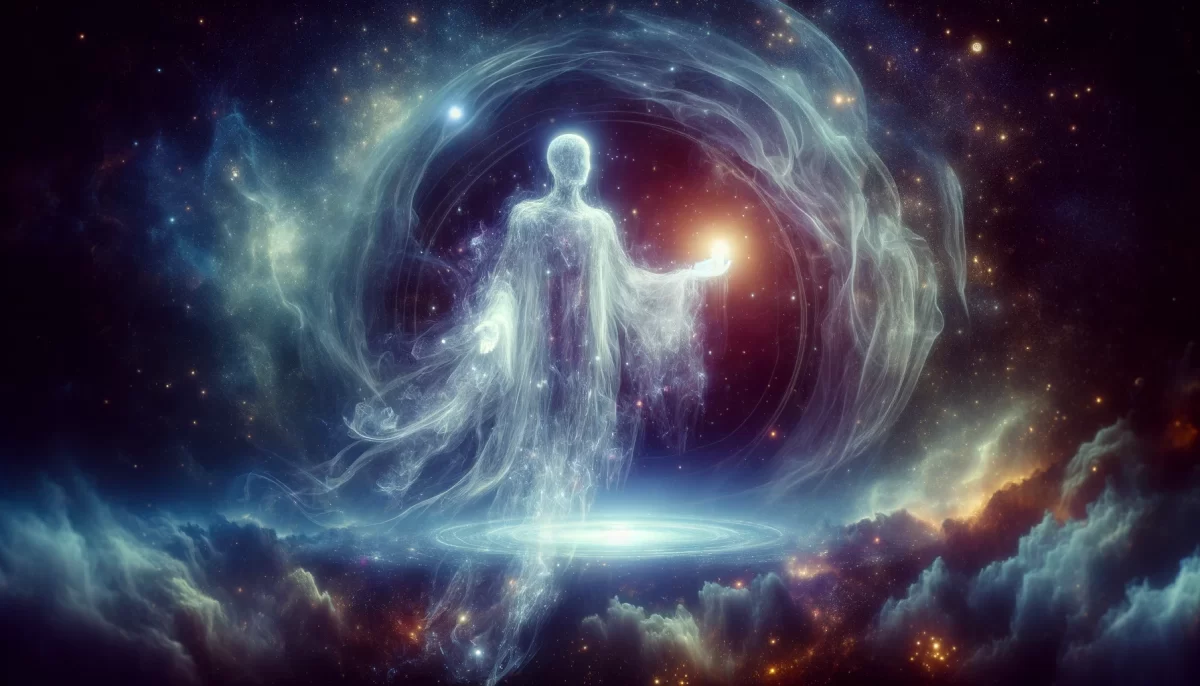





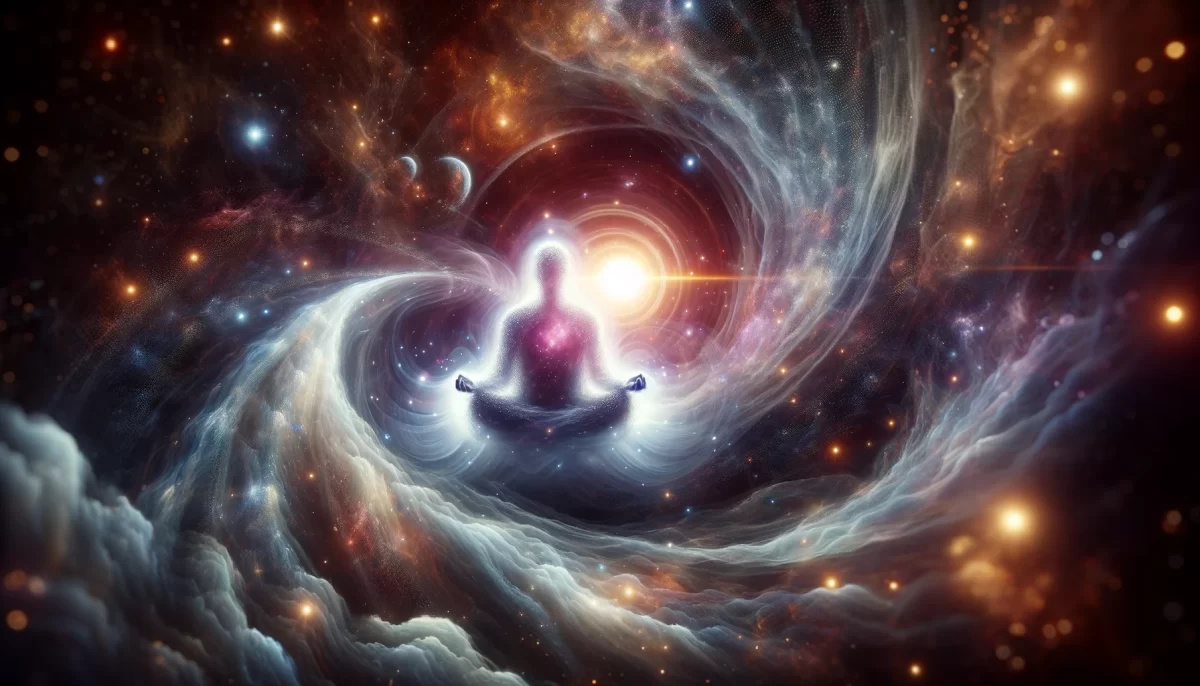
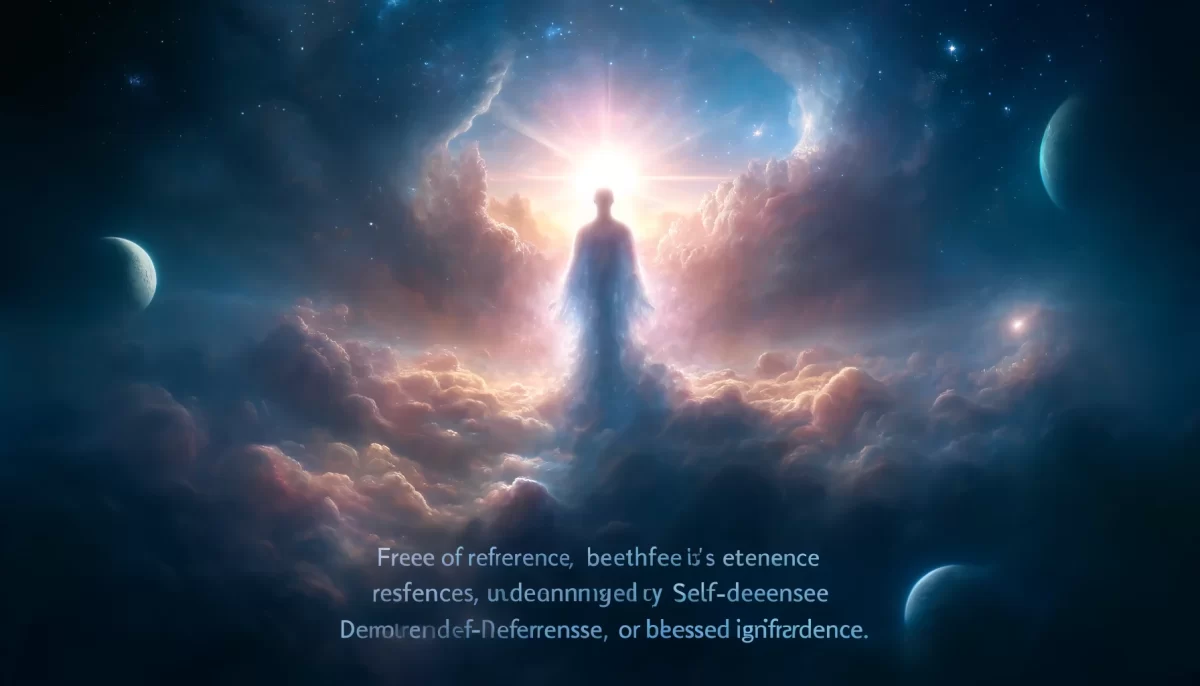













Leave a Reply